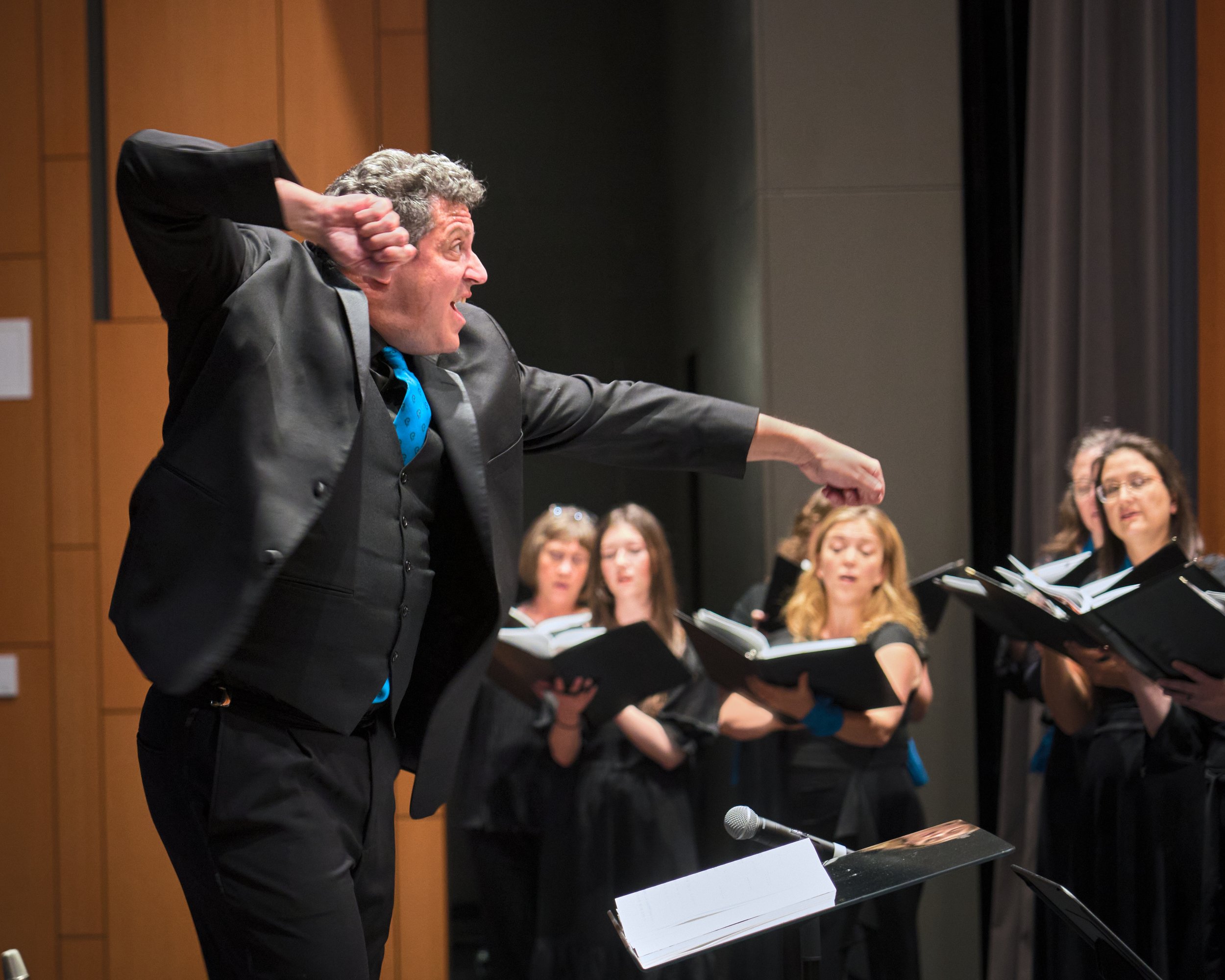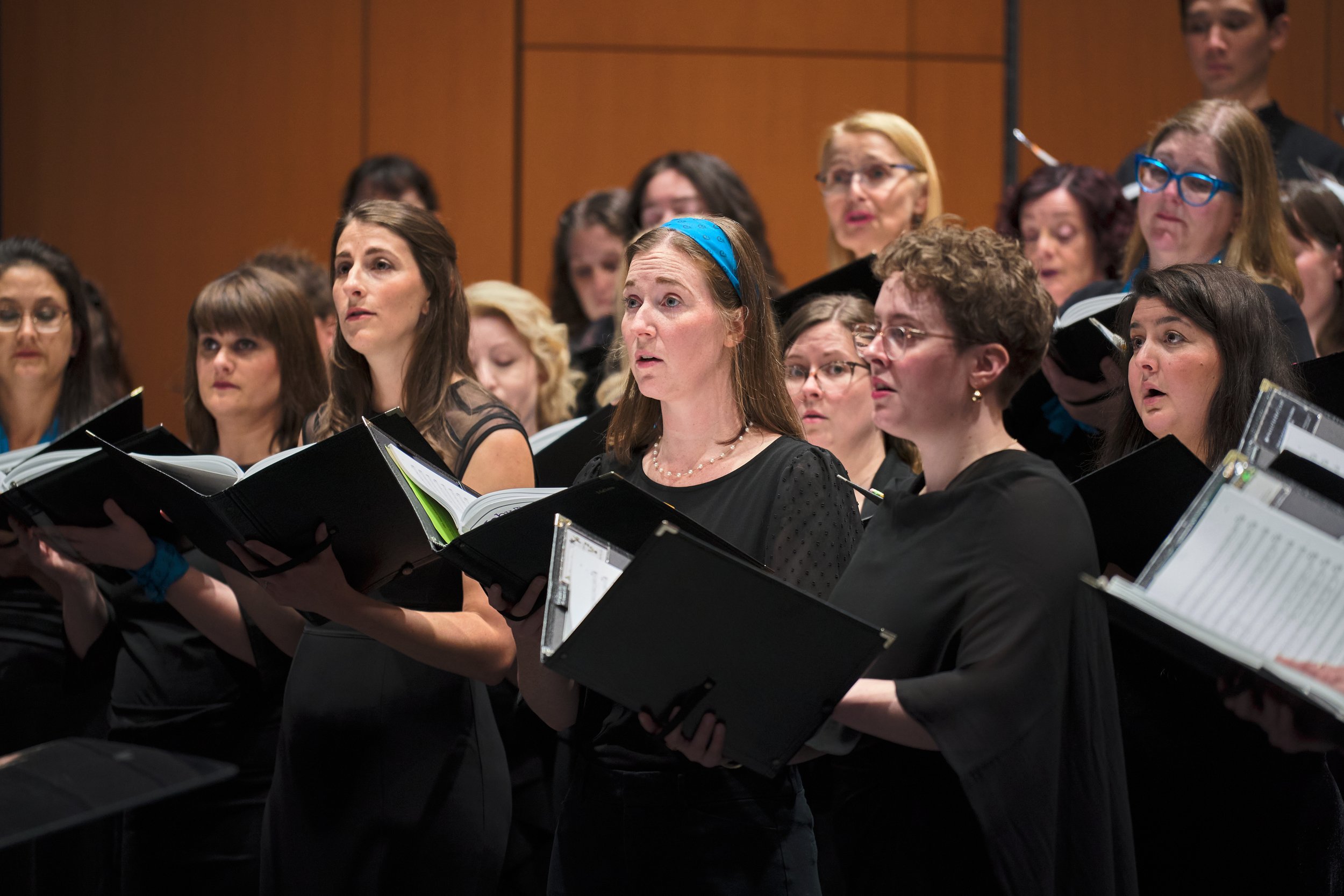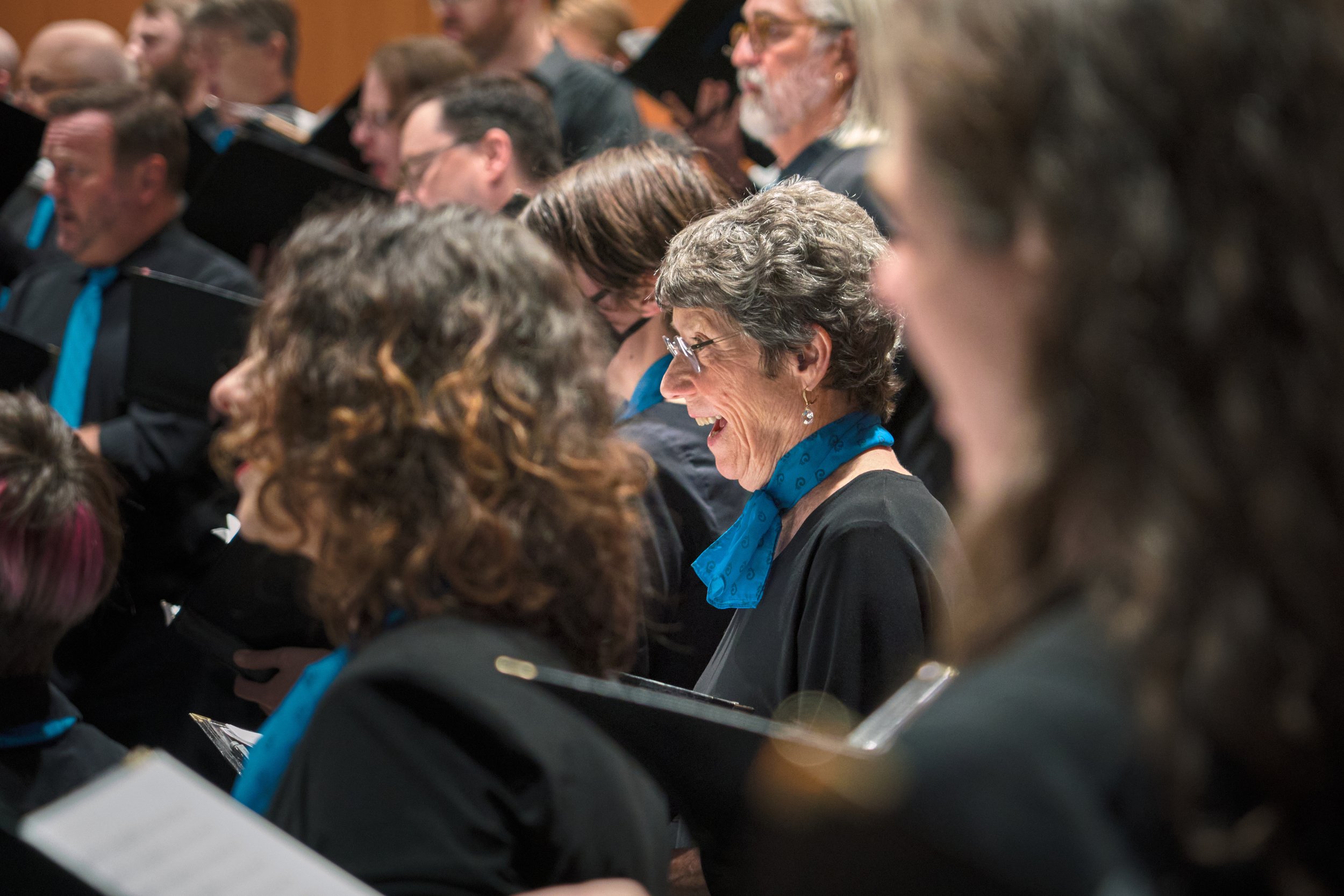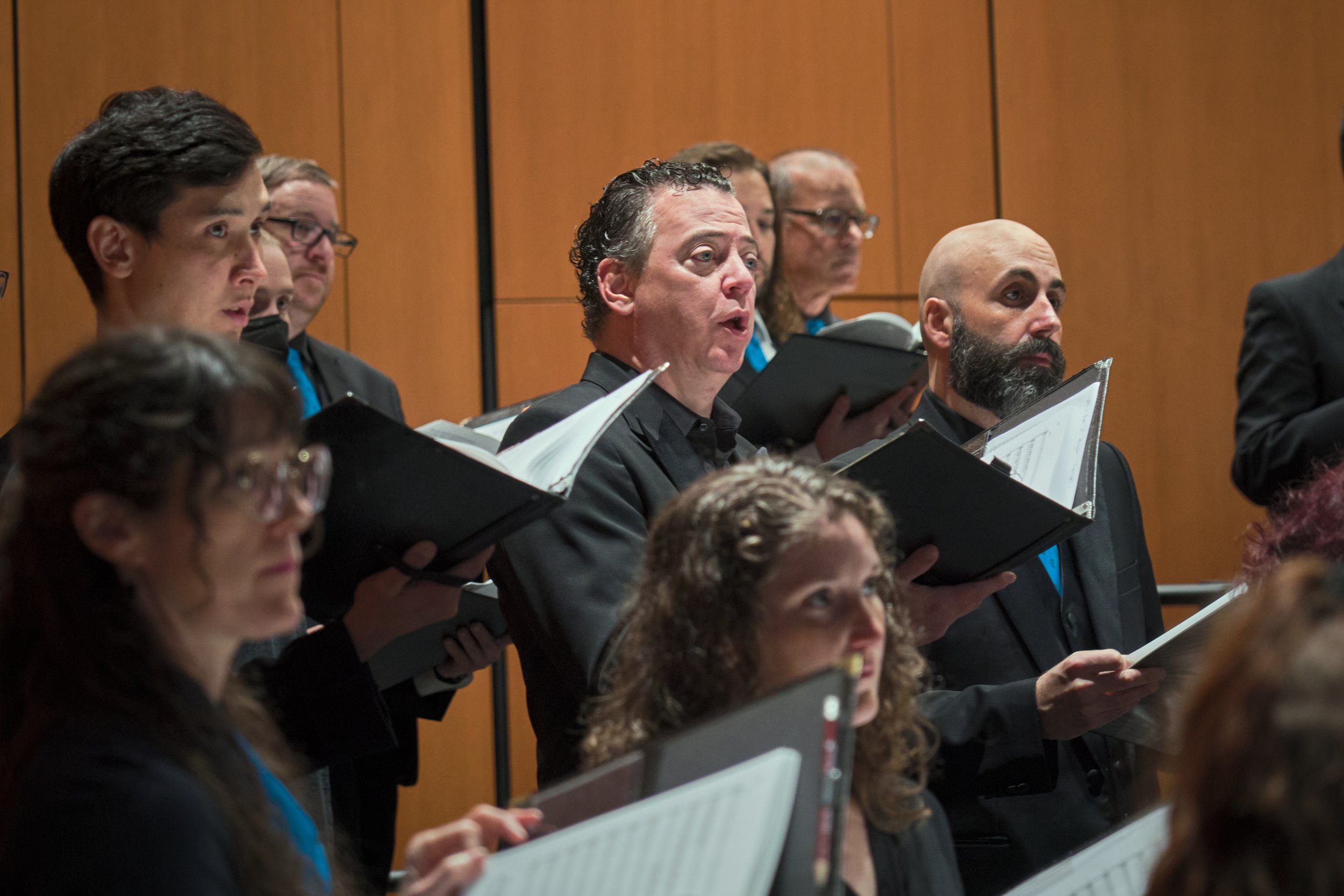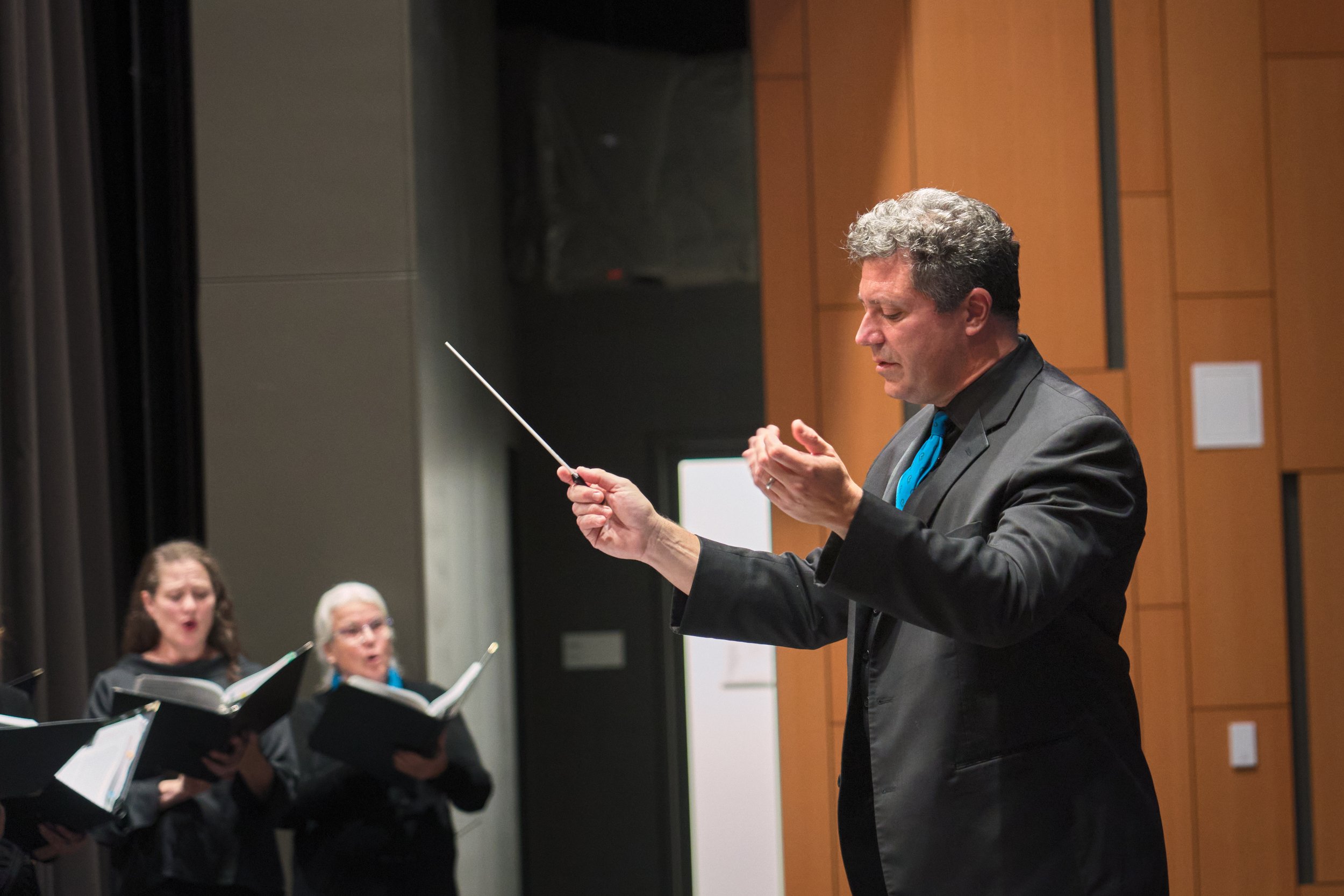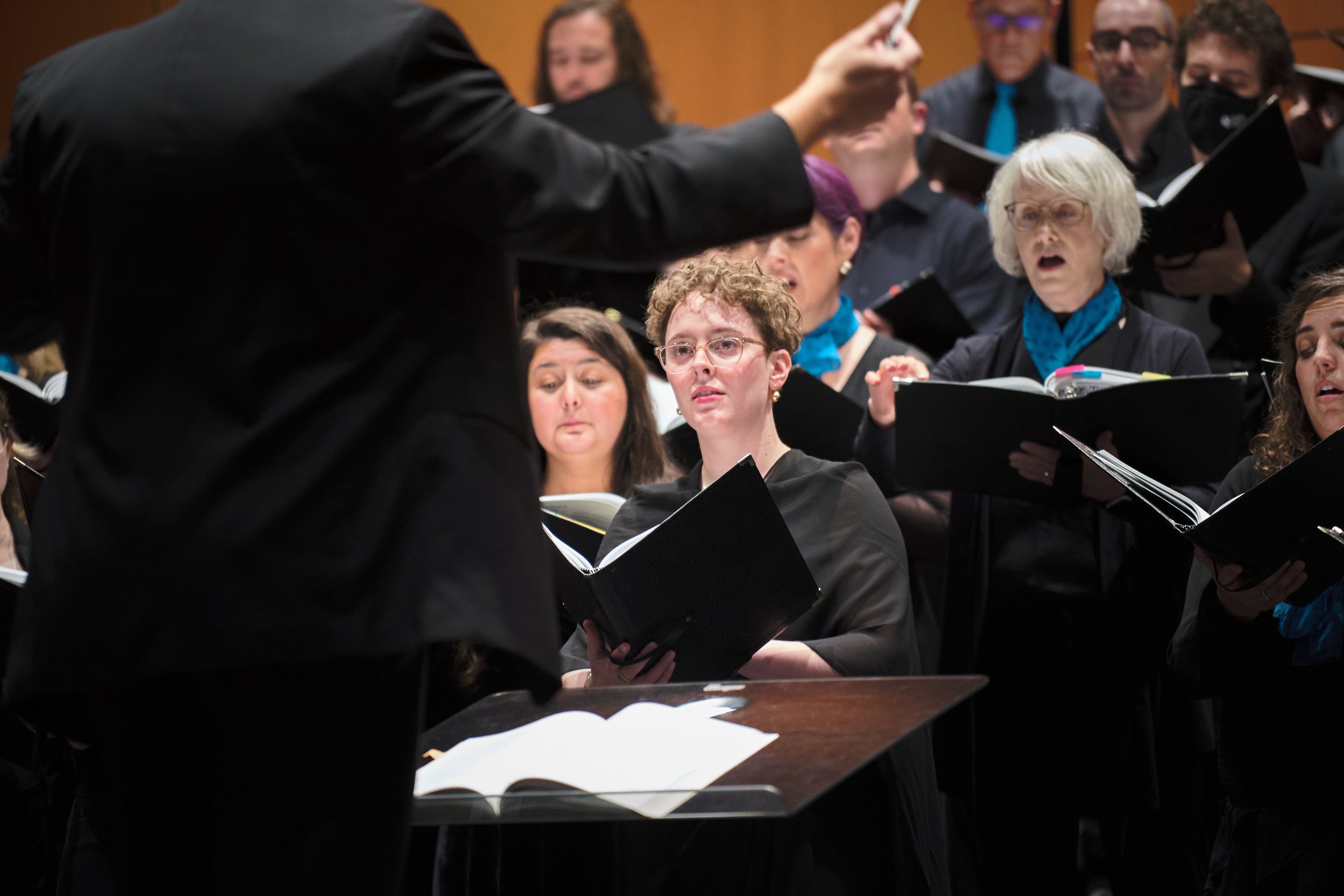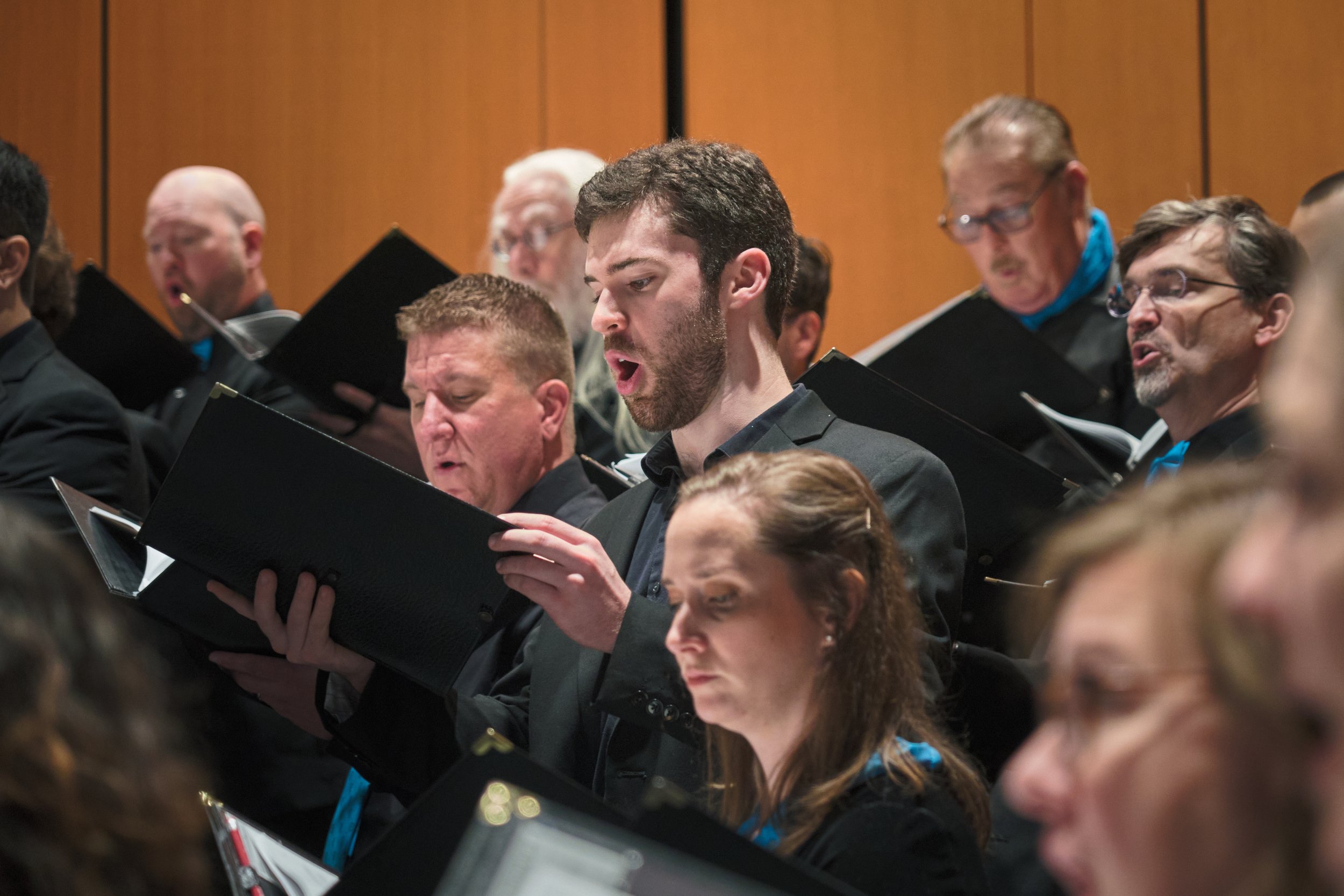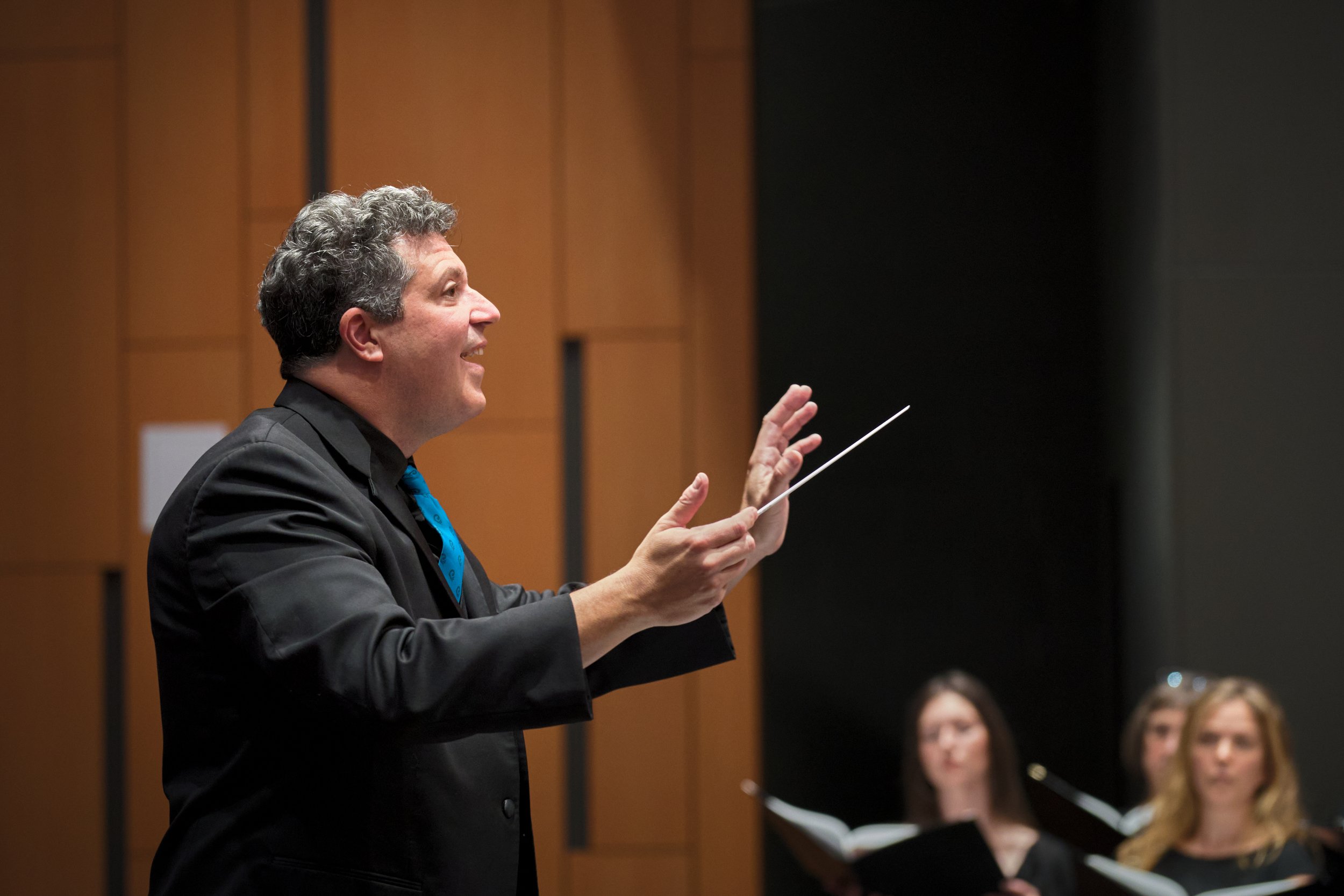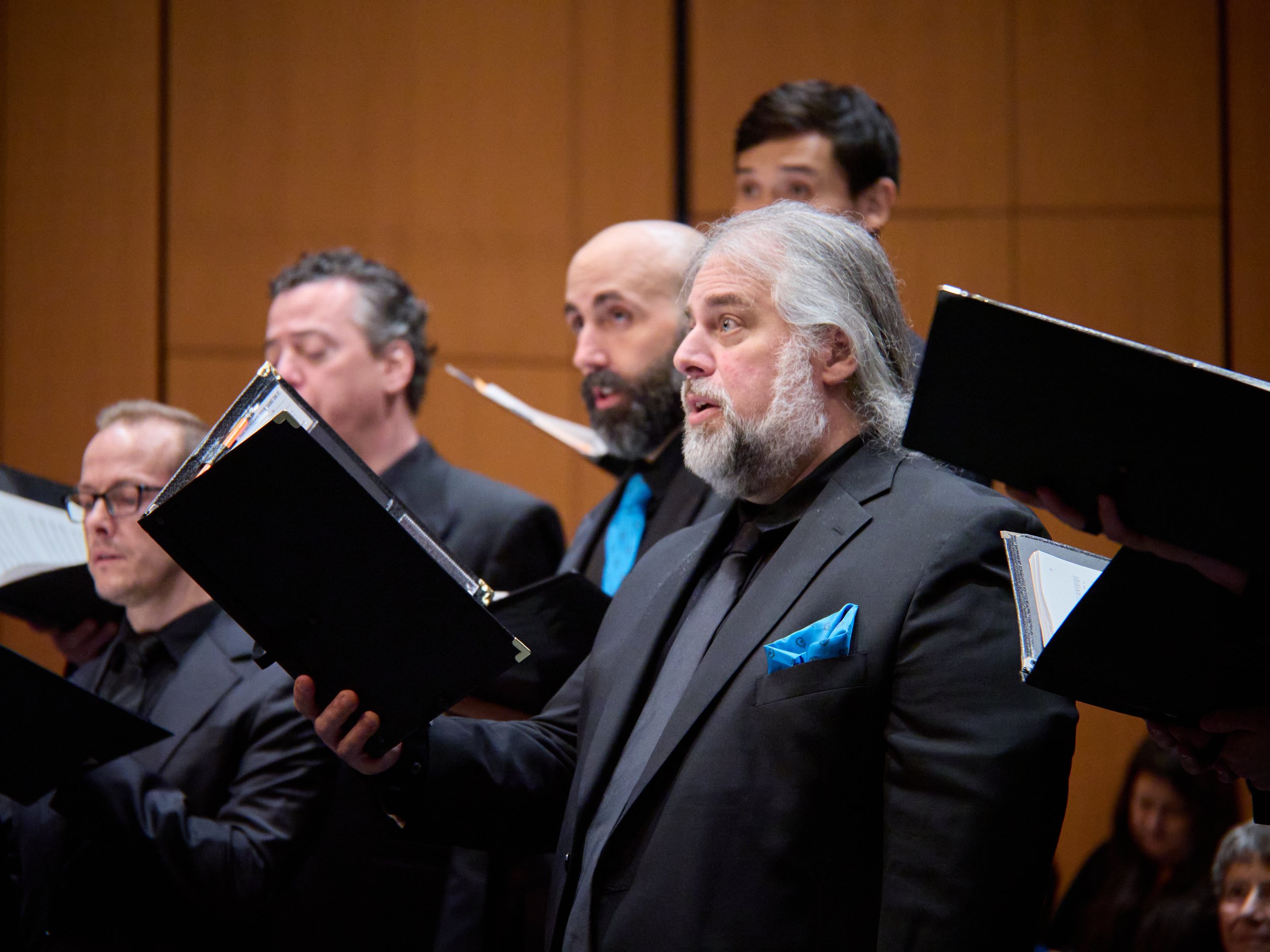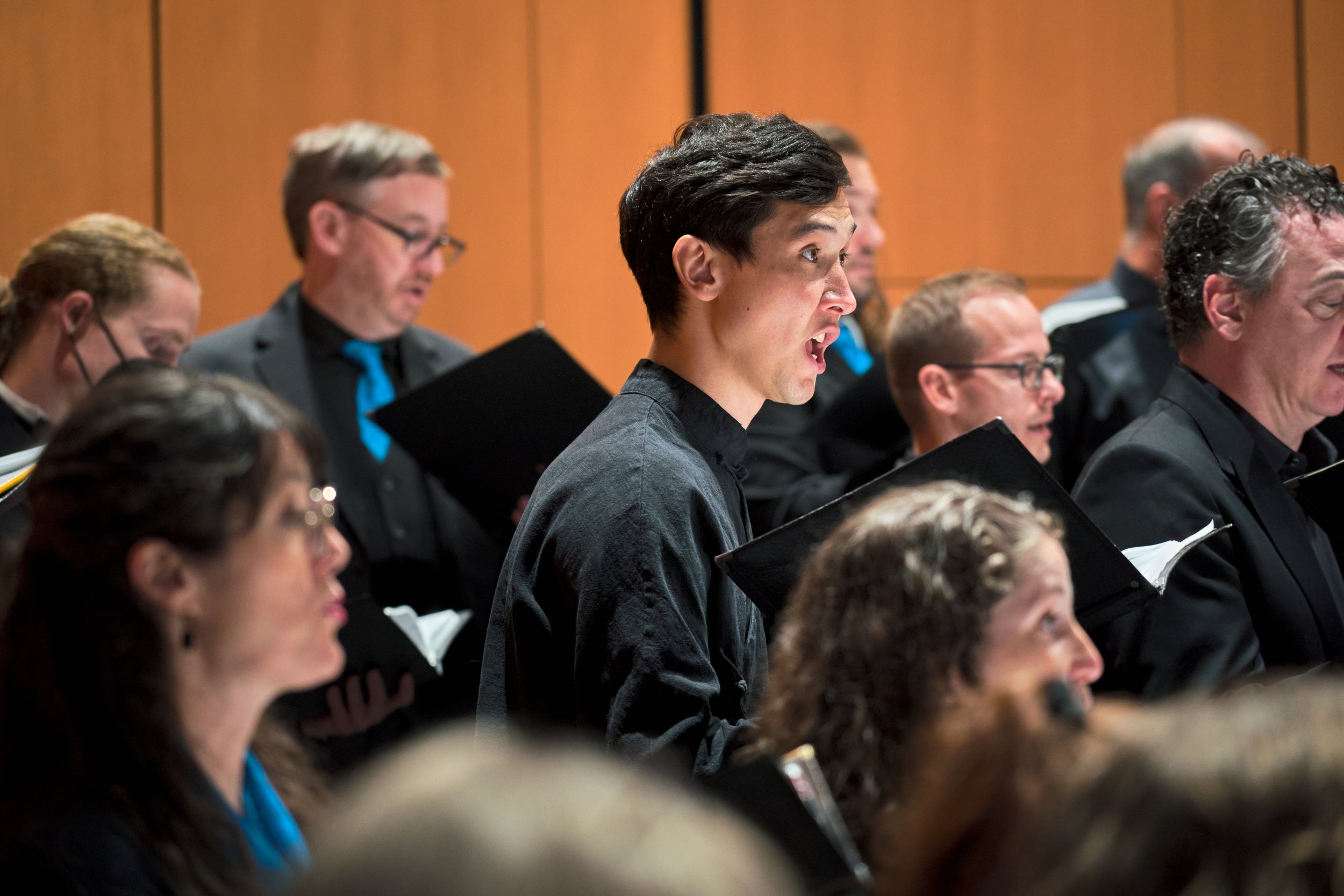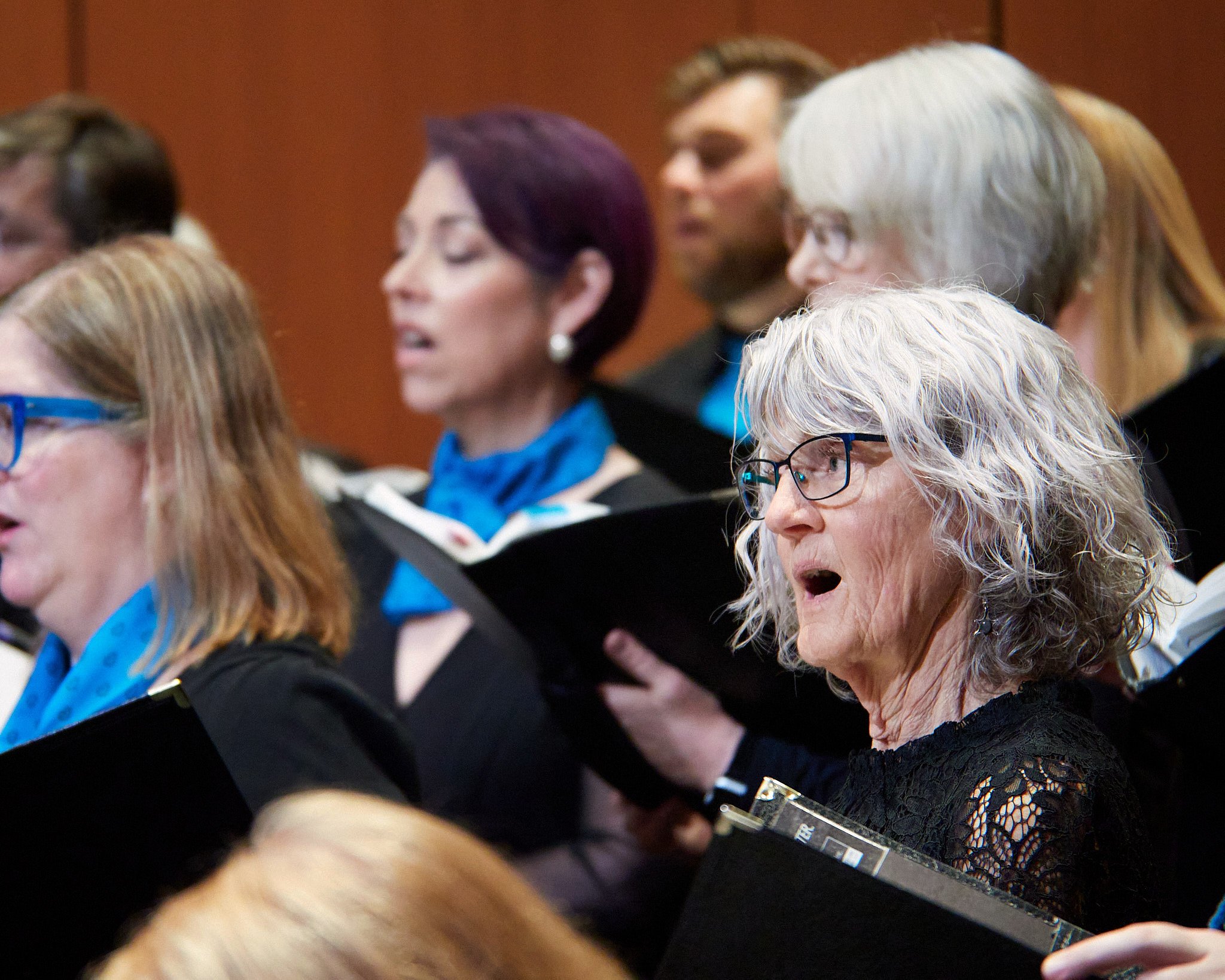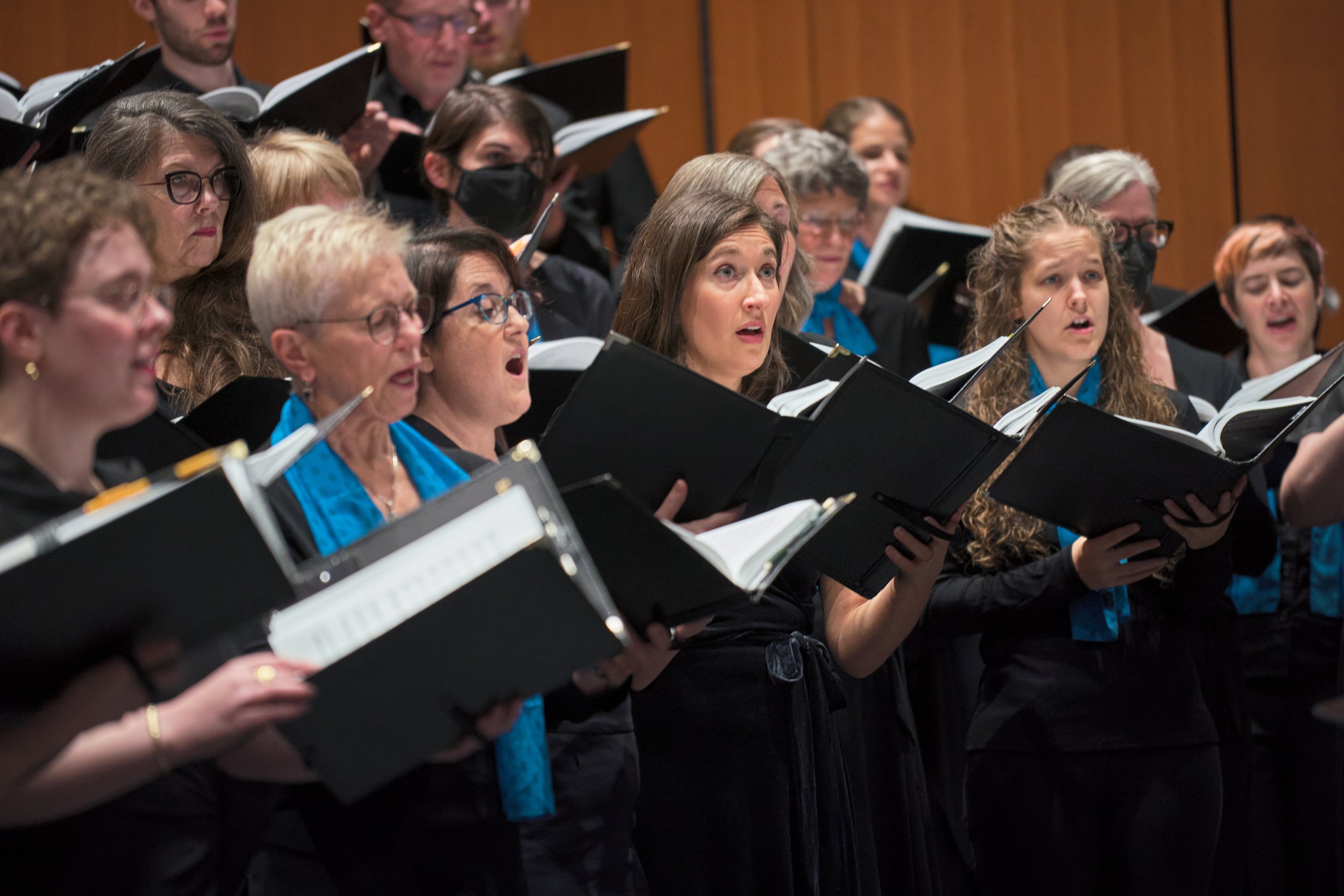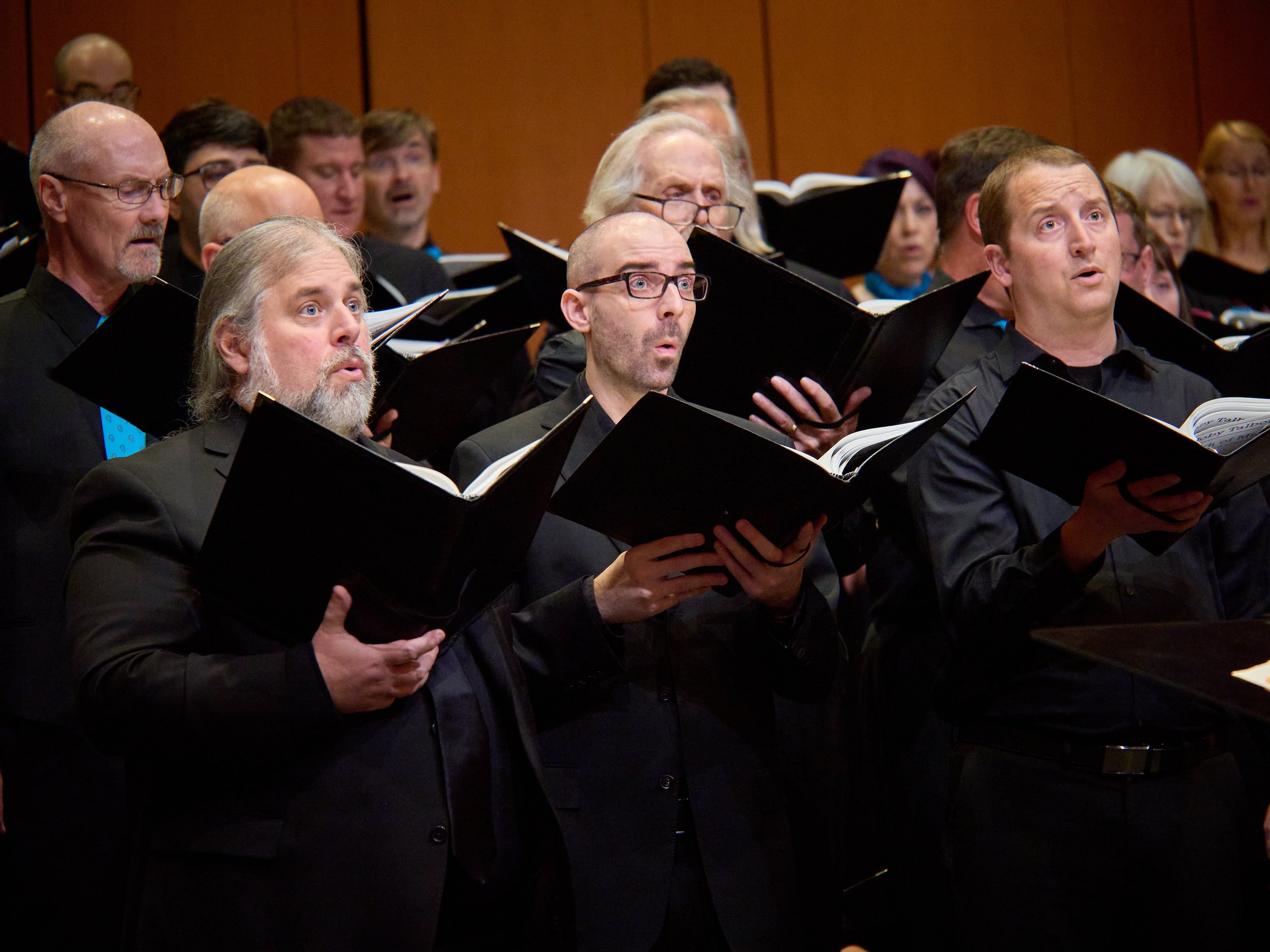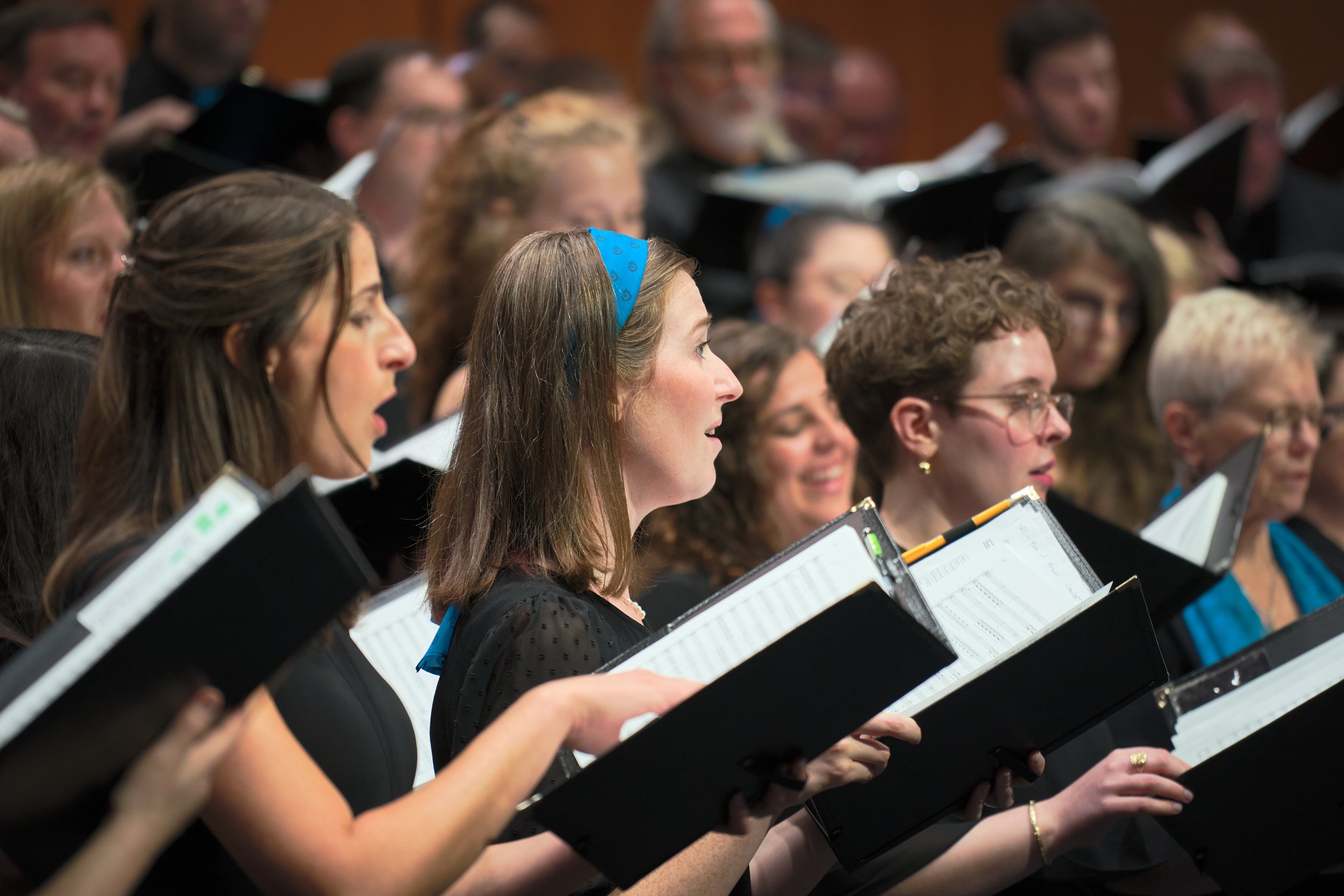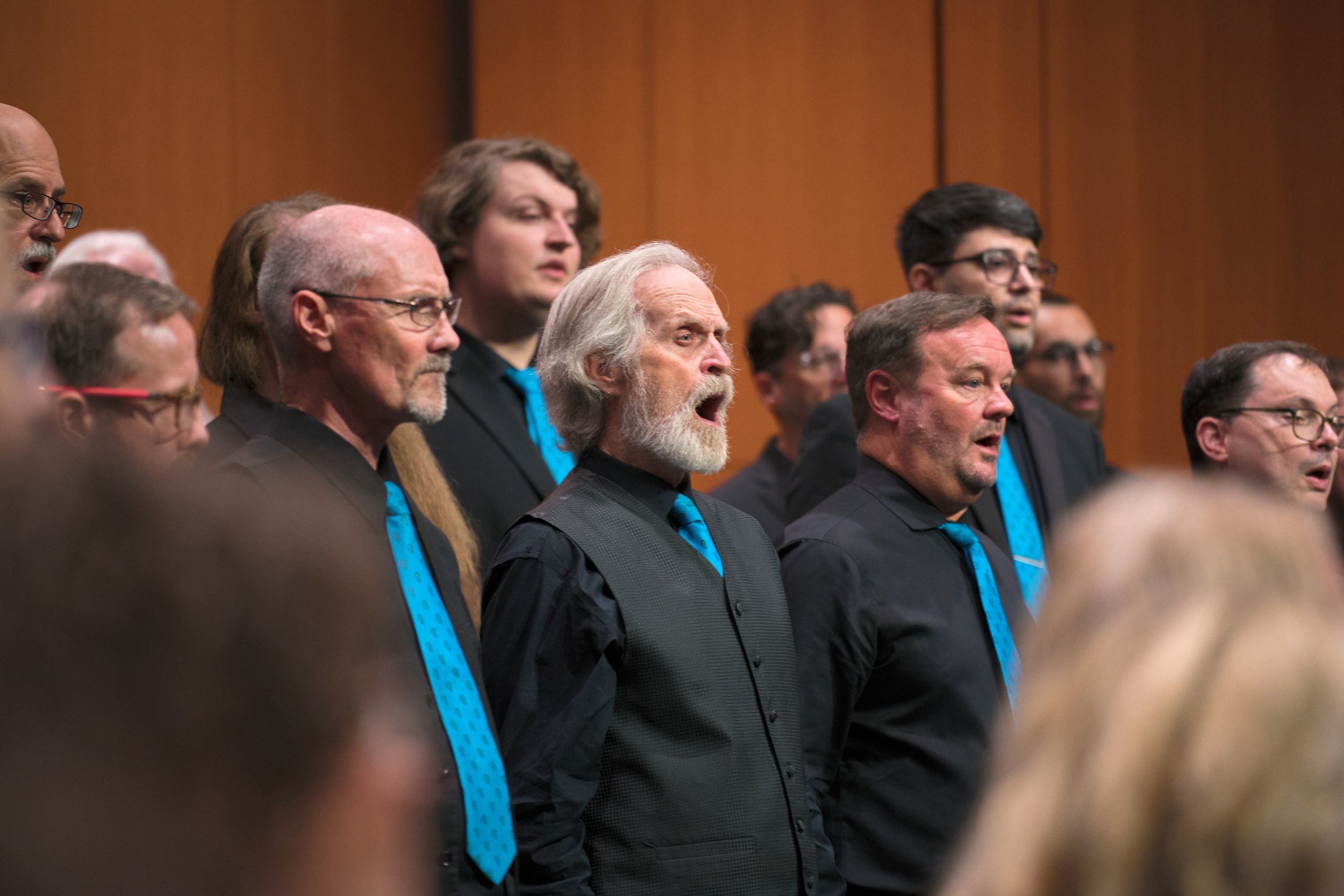
Tremendous throughout…The Oregon Repertory Singers under Ethan Sperry is a top-rank choir; recommended.
– Colin Clarke

Review by Colin Clarke
A celebration of 50 years of the Oregon Repertory Singers, this is an absolute delight. Chock-full of discoveries, it comes with a lavishly illustrated booklet that tells the story of the choir, decade by decade.
The celebration begins with a piece by Ēriks Ešenvands,, and the ethereal first sounds heard are those of rubbed wine glasses. Ešenvalds sets Sara Teasdale in an inspired and inspiring reflection on the vastness of space and the heavens. There is a mystical glow to this performance, which is effortlessly prolonged through the duration of the performance by the Oregon Repertory Singers. Conductor Ethan Sperry paces the work perfectly, as he does in Eric Whitacre’s Sainte-Chapelle (to a text by Charles-Anthony Silvestri). The work is replete with held-breath chordal sequences.
There is just something right about the use of plainchant at the beginning of Franz Biebl’s Ave Maria, as there is with the use of moving chords against a separately moving, supporting bassline later. There is also absolutely no doubting the sincerity both of composer and of performance, particularly in pianiss(ississ)imo. Surprisingly, given the quality of this music, this will be Biebl’s first piece on the Fanfare Archive.
One of several world premiere recordings on this disc, Stacey Philipps’s Close Distancing was, as its title implies, a response to the recent pandemic and its strictures. The title refers, of course, to video calling services, a vital part of communications during that time. Philipps’ response is beautiful if short-lived; it feels as if the moods could have been prolonged and some of the ideas explored more. (In fairness, the text is only three lines: “I see you / I hear you / I miss you.”)
An arrangement of a medieval carol is ushered in by piano in Naomi LaViolette’s arrangement. LaViolette is intimately au fait with the choir; she has been the ORS’s accompanist for over two decades, and she is indeed also the pianist here. Her setting is inspirational and uplifting in its harmonies. The piano part is active, vital, and an indispensable part of the experience; a beautifully shaped interlude seems to confirm its importance. It is followed by a piece by LaViolette herself, her Winter Solstice. To quote the booklet notes: “Winter Solstice is her first a cappella choral composition presenting a less Christian narrative for the holiday season.” The text invites listeners to explore their own shadows and internal darknesses, and the close harmonies chosen by LaViolete reflect this sense of interior exploration. It is simply beautiful, and perfectly performed and recorded. Her Night of Silence (to a text by Amy Hawkins) ruminates on what it is to be alone during the holidays and to question one’s sense of place (“Oh where is home?”), with tears flowing, cleansing the way for the return of love. It is a stunningly beautiful poem, and LaViolette’s setting does it justice. The composer plays the piano; the added cello line towards the end, quoting Silent Night to humming choir and piano, is beautifully played by Hamilton Cheifetz.
The name of Morten Lauridsen needs no introduction to lovers of choral music. Lauridsen enjoys a close association with the ORS, and his Dirait-On, a setting of Rilke, is almost Schubertian in its manifestation of genius distilled into simplicity. It is not with Lauridsen that the disc closes, however, but a related light in the world of contemporary choral music: the Norwegian Ola Gjeilo and his Sunrise Mass, heard in a live performance. The piece includes a part for improvising pianist, and it is Naomi LaViolette who expertly provides the connecting thread. There are four movements: “The Spheres,” “Sunrise,” “Identity,” and “The Ground”; the text is taken from the Catholic liturgy. The silvery, slow-moving clouds of sound of “The Spheres” cede to a heart-melting piano solo. The entrance of the orchestra in “Sunrise” reveals an excellent ensemble. Surely few other high school orchestras have strings that can sustain lines so beautifully in the higher echelons of the violin register. Clearly well-disciplined, the orchestra’s own conductor is Tim Siess, whom one assumes had rehearsal input. The “Laudamus te” section of “Sunrise” is certainly energizing, and sung and played with real gusto. The quiet end segues rather nicely into “Identity,” the still heart of the piece, the gentle choral sound of the ORS perfectly judged. Finally there comes “The Ground,” which begins with an almost chthonic choral sound, as if the earth itself is singing. Those who enjoy the Gjeilo might well wish to explore the Chandos disc of his music, Northern Lights, by Phoenix Chorale under Charles Bruffy: multiple reviewers enjoyed it, and said so in Fanfare 35:6; Maria Nockin went as far as to include that disc in her 2012 Want List.
The recording is tremendous throughout, including the live performance. Two venues, three sessions, and yet Steve Barnett and Preston Smith for the non-live items and engineer Amer Isse for the live performance have managed to find their own connecting thread, as there is a wonderful consistency of approach. There are no fewer than four world premiere recordings here: Philipps’s Close Distancing, LaViolette’s carol arrangement, and her own two pieces, Winter Solstice and Night of Silence.
This is a truly lovely disc. The Oregon Repertory Singers under Ethan Sperry is a top-rank choir; recommended.
